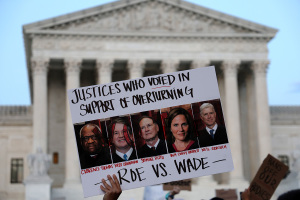Three Iliff Seminary Trustees Resign in Connection with Maldonado Case
Three members of the Iliff Seminary Board of Trustees announce resignation after investigating allegations of institutional racism at the seminary.
Three members of the Iliff Seminary’s board of trustees formally announced their resignation on Wednesday. The three had been on a committee that investigated allegations of possible institutional prejudices and a possible forced-resignation directed at the seminary’s former president David Maldonado.
The board members, Stan Perea, Charles Choi, and Robert Graf wrote in their letter of resignation that they were disappointed with the seminary’s “climate that [had] produced events lacking in integrity and an environment that failed to uphold the levels of ethical and moral activity.”
Maldonado was earlier praised for making reformative measures and improving the seminary’s financial situation. Nonetheless, Maldonado’s relationship with some of the trustees and faculty leaders had reportedly soured almost from the beginning.
Perea, Choi, and Graf publicly released internal documents allegedly revealing antagonism directed at Maldonado from Dean Tom Troeger and Professor Richard Valantasis, faculty representative of the Iliff Board. Perea said to local-news agency Rocky Mountain News, “For us, that was the straw that broke the camel’s back – that Troeger had scripted faculty members.” The trio, earlier this month, had sent letter demanding the dismissal of Troeger and Valantasis. Dissatisfied with the seminary’s response, the three resigned in protest.
Iliff Interim President Phil Wogaman claimed to the Denver Post that the dean’s document could be interpreted in another fashion, such as interpreting moderation. Wogaman cited his claim based on the letters’ urging the faculty to not threaten to quit.
In addition, Wogaman appeared to have shown outrage over the leak, saying to Rocky Mountain, “This is all so strange. Here we have members of the board taking privileged material from a board meeting? That puts us on the spot.”
In an interview with Rocky Mountain, Troger commented that his memo at no “point…called for the removal of the president.” He added that he was not in the liberty to divulge information that would compromise the faculty’s confidentiality.
Upon stepping into office June 2000, Maldonado was the first Latino to take the presidency of a UMC-affiliated seminary. After holding the post for four years, Maldonado abruptly resigned in May 26 of last year, prompting an outside investigation launched by an eight-member review committee made up of representatives from the United Methodist University Senate and the General Commission on Religion and Race.
The investigation resulted from a letter Maldonado wrote to the trustees at the time of his resignation in May 2004. In the letter, Maldonado complained that the faculty often resisted his leadership. In addition, Maldonado said that faculty leaders often accused him of being too theologically conservative or moderate, “not fit,” and “culturally different.” He also wrote that he felt pressures from faculty leaders and a few of the trustees to leave in the course of his four years at Iliff.
Last November, the committee placed the school on “immediate public warning,” shortly after citing the seminary for failure in ensuring due respect and proper treatment of, then-president, David Maldonado. The committee report stated: “The review team found that failures to assert appropriate leadership by the board of trustees, the unwillingness of some faculty members to recognize and respect different leadership styles, as well as not letting go of traditional norms and behaviors to allow for an inclusive institutional transformation, contributed to the problems that President Maldonado and the institution faced.” The committee also urged Iliff to reform its administration or face losing US$90,000 in Ministerial Education Funds.
The review committee also listed a series of recommendations to the Iliff board of trustees. In the November 2004 report, the committee also recommended that the University Senate and Commission on Religion and Race dispatch a team to Iliff within the next six months to monitor the school’s progress in implementing the recommendations such as:
First, the seminary must redefine the president’s role and responsibilities. In addition, the president must be placed as the board’s chief executive, and may not be excluded from any committee or access to relevant documents. The president also must be allowed to have a say in decisions concerning faculty decision-making.
Second, the seminary will have to seek the guidance of the Association of Governing Boards to train trustees and revise the board’s composition.
Third, the seminary must work towards racial diversity, including seeking assistance from the Commission on Religion and Race. In addition, the seminary must create more intentional preparations in preparing ministerial students for work in multi-cultural and multi-racial settings. Also, the seminary must agree to make improvements with academic culture to ensure open-mindedness to different views.
Fourth, the seminary must create an ombudsperson’s office and a program to address potential grievances amongst students, faculty, or administrators in the future. In addition to revising the faculty handbook, the seminary must limit faculty and student representative on the board of trustees to one-year terms, with the possibility of returning after five years.
Fifth, Iliff must agree to search for a dean outside the seminary’s administration and faculty after appointing a new president. Also, the seminary must cooperate with its constituencies in revising its mission statement.
In the course of the lengthy investigation, the review team questioned 90 people in 54 sessions conducted in a three-day period. The review team also spent the time poring over reading and holding discussion.
According to various sources, Wogoman claims that most of the total 20 recommendations were fulfilled including the establishment of the ombudsmen office to address future grievances.
The UMC Hispanic/Latino caucus, however, continues to voice outrage over the controversy surrounding Maldonado’s resignation from presidency. The caucus reportedly continues to urge prospective Latin seminary students to not attend the school, and for Maldonado’s reinstatement as seminary president.




























